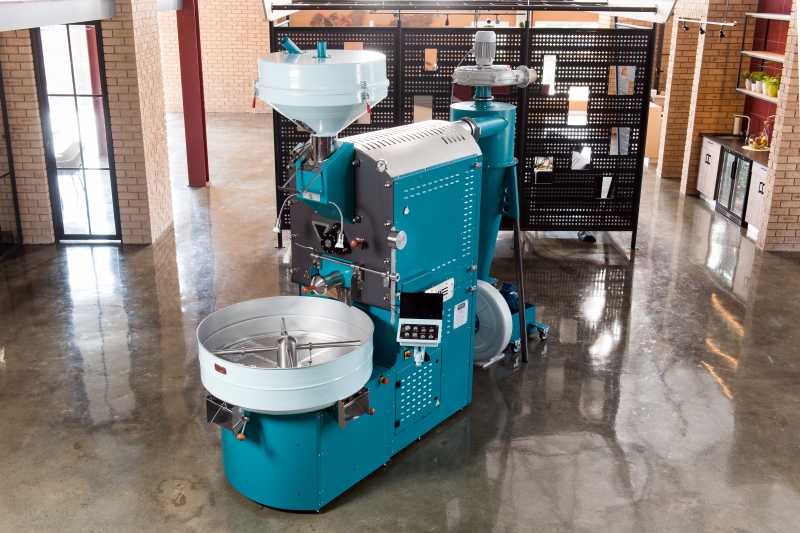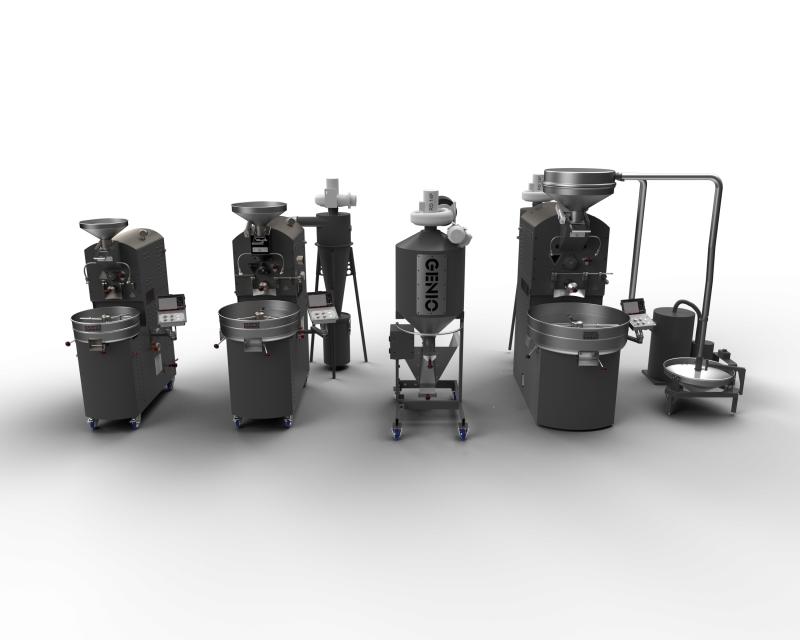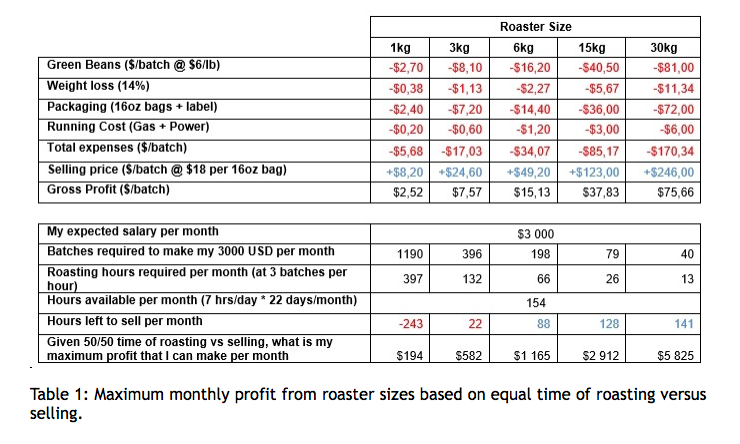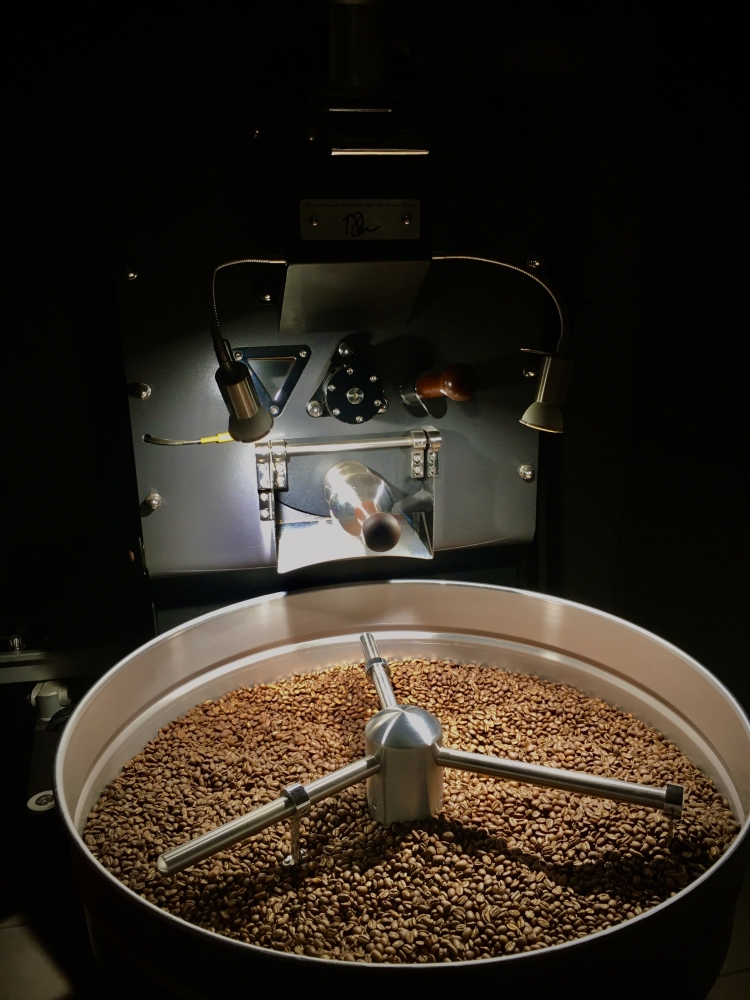
Every month we will be featuring an exclusive blog from Neil Maree, owner of Genio Coffee Roasters to expand your knowledge of these machines and give you some insight into the coffee industry. We already learnt so much from this first piece! Take it away Neil...
Coffee roasting is as much a science as it is an art.
I am Neil Maree. I am an engineer and the founder of Genio Coffee Roasters.
My passion for engineering and the love of coffee was cultivated at the University of the North-West, South Africa, where my final year engineering project ultimately led to me to build a coffee roaster. I started developing machines full time and Genio Coffee Roasters was founded in 2011. At Genio we are now celebrating our first 10 years in the coffee roasting industry.
My topic for today is how to decide what size of roaster you need to buy to suit your roasting needs. This decision requires a balanced approach as there are many variables to consider. In my experience, prospective buyers often ask for the incorrect size because they have not carefully considered their target market nor have they done a forecast of what they will be able to sell.
Investing in a roaster which is too big can be as counter-productive as investing in a roaster which is too small. As much as you need time to roast, you need time to sell and you have to be able to sell what you have roasted. As a commercial coffee roaster, you are in business to make money and to serve your customer base at a sustainable level. This is where you need to hit the sweet spot in order for your business to turn over. Always remember that selling equals making money!

Pictured here are (from left to right) examples of a 3kg, 6kg and 15kg roaster set up. The cyclindrical piece of equipment in the centre is a de-stoner.
Here goes the math behind the roasting! I have devised a calculator to aid you in making an informed decision when you consider the size of the coffee roaster you are planning to buy. My calculations are based on the 1kg, 3kg, 6kg, 15kg and 30kg roaster sizes – the micro roaster (1kg to 3kg), small commercial roaster (5kg to 15kg) and the medium commercial roaster (15kg to 30kg).
 {Ed's Note: Current Exchange Rate is $1 = R15,18}
{Ed's Note: Current Exchange Rate is $1 = R15,18}
In Table 1, you can see that a 1kg machine is totally inadequate to earn a salary of 3000 USD per month. A 6kg roaster will work, but you’d need to sell 2600x 16oz bags (1190x 1kg bags) to make your salary, which leaves you with only 88 hours per month to do active selling. With a 15kg machine, you’ll have 128 hours left (16 days out of the month if you actively sell for 7 hours per day). This is quite easy to achieve and your business will grow quickly since you are spending 2 weeks out of every month actively selling and promoting your brand. So, in this scenario, a 6-15kg will be sufficient given your expected salary income.
I have put together further scenarios to illustrate the math:
Scenario 1: I want to roast for my own coffee shop that consumes 20lb of coffee per day. I also sell a few bags retail to my walk-in patrons. I previously bought roasted coffee at $18/lb. What size roaster do I need to buy?

Recommendation: With a 6kg machine I’d need to roast for 59 hours per month. I’d rather get a 15kg machine and only roast every Monday for 6 hours. Then my coffee will be degassed by Friday, ready for the weekend rush. Yes, the capital expense is more. But do I really have another 59 hours to spend away from the shop, busy roasting? Probably not.
Scenario 2: I used to earn 4000 USD per month at my corporate job. I now want to have my own business. How much coffee do I need to sell to sustain my lifestyle?

Recommendation: This is a new business and I can invest all of my time into it. A 6kg machine will be adequate as I’ll still have 66 hours (8 days) per month left to sell.
Scenario 3: I currently have a 6kg machine roasting, but I’m just too busy. I’m making good money, but I spend most of my time behind the machine. If I upgraded to a 15kg machine, how much more time will I have per month in order to run and grow my business?

Recommendation: Upgrading my 6kg to a 15kg machine is the perfect solution. I currently only have 22 hours per month for selling my coffee. With a 15kg machine, I can increase that up to 101 hours! Alternatively, I can employ a roasting operator who can work 7 hours per day on the machine, leaving me with my full 154 hours per month to sell and grow the business. But this operator would increase my expenses with another $3000. So, I’d need to sell more…?
Scott Rao, coffee consultant and author, also emphasises the importance of looking towards the future when considering the capacity of your coffee roaster -- you need to know how much coffee you anticipate to roast every week for the next two years. Scott explains the crucial marker is the weekly amount of coffee you plan to roast at a point two years from the day you purchase your new coffee roaster. Scott’s recommendation is to buy a roaster size big enough to roast that amount of coffee in no more than 25 hours (https://www.scottrao.com/blog/2020/4/8/how-to-choose-a-roasting-machine).

The magical art of roasting coffee
I trust that these calculations have sparked your interest and have made you more aware of the variables you need to consider when deciding on a roaster size. We all have our own unique set of circumstances driven by our own budget and our own business plan. I have made several assumptions in my calculations which may well differ from one situation to another. I am therefore inviting you to contact me for a one-on-one consultation about your specific coffee roasting needs (https://genioroasters.co.za/).
All of the best in coffee.
Neil